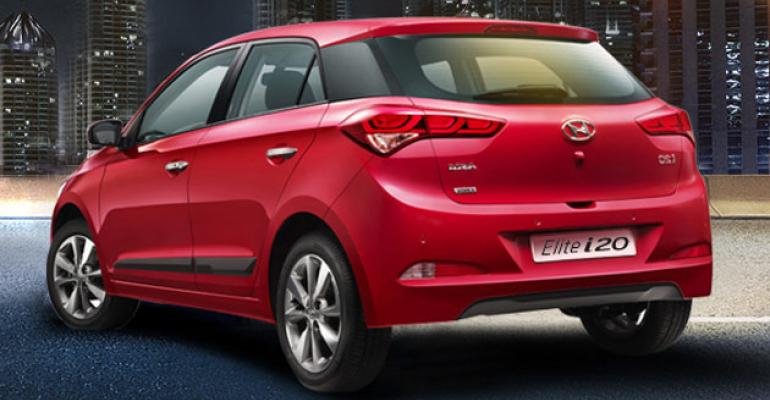Hyundai Group is looking to expand its presence in India but, despite exhortations by a government minister, a third auto-assembly plant isn’t part of the plan.
At a May 8 meeting in New Delhi organized by the Korea International Trade Assn. and the Korean Chamber of Commerce, Amitabh Kant, secretary of India’s Department of Policy and Promotion, told the gathered executives: “The future for Korean companies is not in Korea. It is in India both for manufacturing for the domestic market and for export.”
Turning to Hyundai Motor India CEO She Bo Shin, Kant said, “If you don’t set up your second plant now, you will regret it later.” The automaker in fact already has two plants in India, but the larger point Kant was trying to make was that other manufacturers will expand into the country’s growing car market in three or four years, leaving Hyundai with no room to grow and stay competitive.
Speculation about Hyundai building a third plant in a country where it ranks No.2 in sales and is the largest car exporter grew when Indian Prime Minister Narenda Mandi met May 19 with Chung Mong-koo, chairman of Hyundai Motor and Hyundai Motor Group.
Despite media reports to the contrary, Mandi did not ask Chung to build a new plant during their half-hour meeting in Seoul, nor did Chung say he was considering it.
“Mandi did not specifically mention a new plant and only gave Chung assurances that India will seek new ways to continue to cooperate with Hyundai Motor,” a Hyundai spokesman said.
Chung did say he wanted Hyundai Group to raise its profile in the rapid development of India’s infrastructure through its Hyundai Engineering and Construction and Hyundai Rotem railway rolling-stock affiliates. Both companies already have major projects under way in India.
Chung and Mandi met the day after South Korea President Park Geun Hye verbally indicated her government would make available $9 billion in infrastructure aid to India through financial support and special trade arrangements.
Hyundai is balking at building a third plant because it currently has more than enough production capacity in India, allowing it to circumvent tariffs ranging from 80% to 135% on imported cars. The government also is doubling duties on imported commercial vehicles, from 10% to 20%.
Combined capacity of Hyundai’s factories near Chennai in Tamil Nadu state on the east coast of India, is 680,000 vehicles, enough to serve the domestic market and vary the export build in sync with local output.
Plant 1 focuses on i20 models for the domestic market and produces completely built-up versions of the Accent, Elantra and Sonata, as well as complete-knocked-down vehicles, for export.
Plant 2 builds several high-volume models for the local market including the Xcent and Grand i10.
The automaker’s flexibility allowed it, for example, to stop exporting Korea-built i20 models to Europe last July in favor of a new plant in Turkey, with additional output supplied as needed by a Czech Republic factory. That meant Hyundai could put more copies of the hot-selling, award-winning CUV on the local market.
Both plants assemble vehicles from modules supplied by Hyundai affiliates and other Korean suppliers in India. Nearly 70% of the modules and parts are supplied from local vendors, including 40 from Korea, many of them Hyundai Group affiliates, and 77 Indian companies.
The Hyundai spokesman says the 2015 production target for the Chennai plants totals 640,000 units, a 4% increase over 2014 and well within current capacity.
Hyundai India’s sales goal this year is 465,000 vehicles, a year-over-year increase of 13%. The export target of 175,000 vehicles is up 4% from 2014. Global deliveries rose 2.6% to 51,594 units in April, with a 9.5% gain locally offset by a 13.8% drop in export sales largely owing to a decision to halt shipments to Europe, which now receives Hyundai vehicles built in Turkey.
In two recent presentations to securities analysts, Hyundai Motor said Hyundai India’s market share grew from 15.4% in calendar 2014 to 16.2% at the end of the first-quarter 2015.
Growth has been driven by strong sales of the i20 Active CUV and i20 Elite hatchback, and the automaker has high hopes for a new small SUV launching around August.





